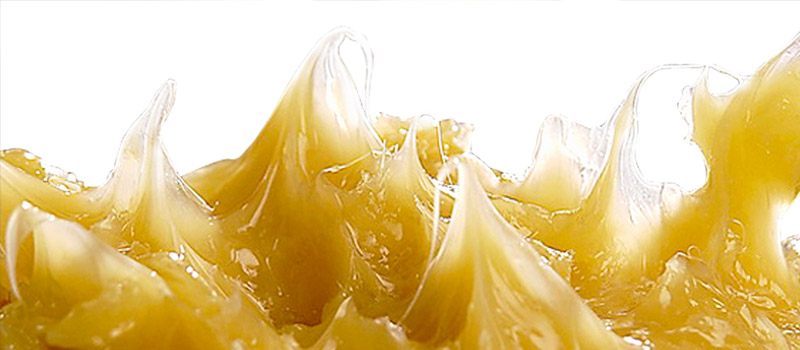Grease, thick, oily lubricant consisting of inedible lard, the rendered fat of waste animal parts, or a petroleum-derived or synthetic oil containing a thickening agent.
White grease is made from inedible hog fat and has a low content of free fatty acids. Yellow grease is made from darker parts of the hog and may include parts used to make white grease. Brown grease contains beef and mutton fats as well as hog fats. Fleshing grease is the fatty material trimmed from hides and pelts. Bone grease, hide grease, and garbage grease is named according to their origin. In some factories, food offal is used along with animal carcasses, butcher-shop scraps, and garbage from restaurants for recovery of fats.
Greases of mineral or synthetic origin consist of a thickening agent dispersed in a liquid lubricant such as petroleum oil or a synthetic fluid. The thickening agent may be soap, an inorganic gel, or an organic substance. Other additives inhibit oxidation and corrosion, prevent wear, and change viscosity. The fluid component is the more important lubricant for clearances between parts that are relatively large, but for small clearances, the molecular soap layers provide the lubrication.
Synthetic grease may consist of synthetic oils containing standard soaps or may be a mixture of synthetic thickeners, or bases, in petroleum oils. Silicones are greases in which both the base and the oil are synthetic. Synthetic greases are made in water-soluble and water-resistant forms and may be used over a wide temperature range. The synthetics can be used in contact with natural or other rubbers because they do not soften these materials.
What are the properties of grease?
- Amount and type of thickener.
- Additives.
- Solids (i.e. Moly, Graphite).
- Water washout and spray off.
- Mechanical stability.
- Oil separation.
- Storage life.
- Oxidation resistance.
- Rust / corrosion resistance.
- Viscosity and type of base oil.
- Bearing life (wheels, electric motors).
- Compatibility (other greases, seals).
- Low temperature torque.
What type of Thickeners are used?
- Clay (Organo Clay, i.e. Bentone).
- Lithium.
- Lithium Complex.
- Lithium / Calcium Mixed Complex.
- Calcium Complex.
- Aluminium Complex.
- Others (Calcium, Sodium, Polyurea)
What types of Base Oils are used?
- Castor Oils.
- Mineral Oils (Min).
- Synthetic Oils (Syn) (Group 3 & 4, PAO & Ester).
- White Oils (Pharmaceutical Grade).
Royal Global Energy has an extensive range of grease products covering most applications in the industrial and automotive sectors, from wheel and trailer bearings to anti-seize and assembly compounds. The range also includes semi-fluid greases, right up to very firm greases and also includes molybdenum disulphide and graphite containing greases to suit all lubrication requirements.

